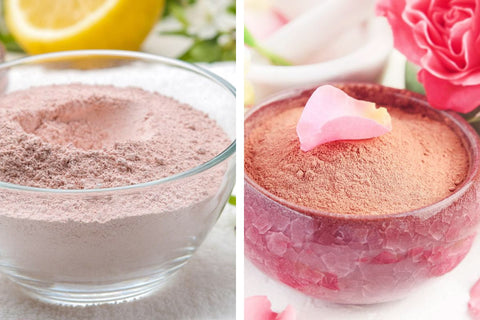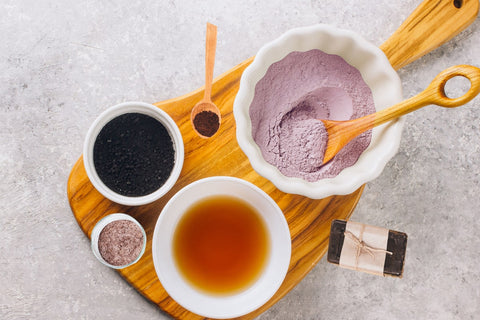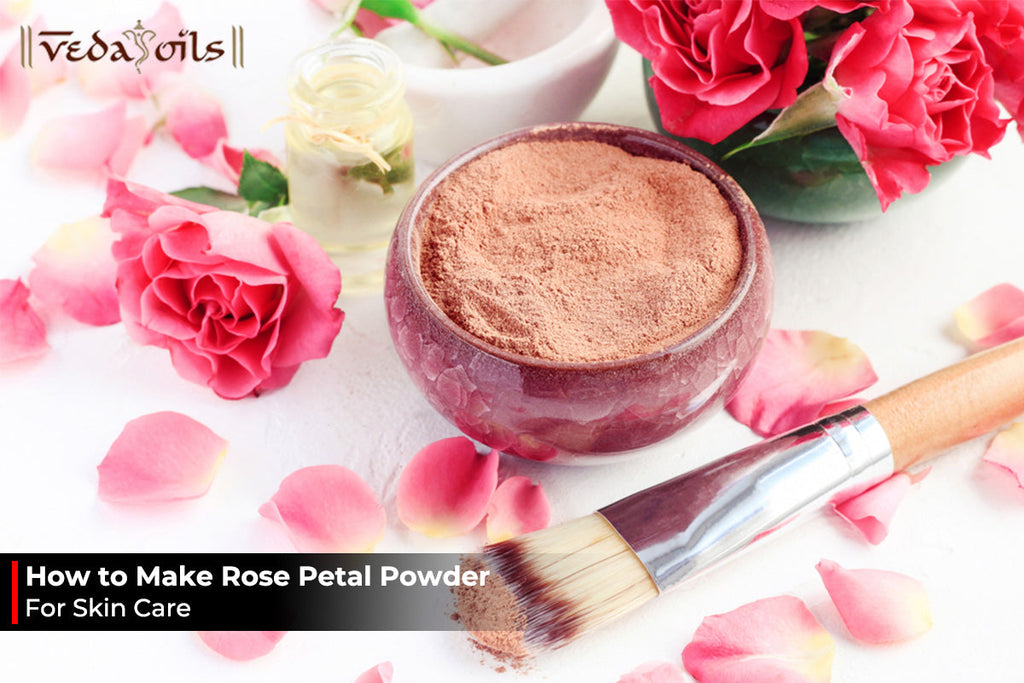French Pink Clay Vs. Rose Clay: Which One Is Better For You
Clay has long been recognized for its benefits in skincare and beauty routines. Among the numerous available types, French pink and rose clay have gained popularity for their unique properties. French pink clay, sourced from France, is mineral-rich and offers gentle exfoliation and detoxification.

On the other hand, rose clay, also known as pink kaolin clay, is a milder form derived from kaolinite clay. It is renowned for its soothing and nourishing qualities, making it suitable for sensitive or dry skin and hair. Whether seeking a deep cleanse or a gentle treatment, French pink and rose clay offer distinct advantages to enhance your skin and hair care regimen. Let's look at both in detail in this blog on french pink clay vs rose clay.
French Pink Clay Vs. Rose Clay For Hair
When it comes to hair care, French Pink Clay and Rose Clay both offer unique benefits. French pink clay helps to cleanse and detoxify the scalp, while rose clay nourishes and hydrates the hair strands. French pink clay for hair helps to cleanse and detoxify the scalp. It absorbs excess oil, dirt, and impurities, leaving the scalp feeling refreshed and revitalized. This can help to reduce scalp buildup, promote a healthier environment for hair growth, and prevent issues like dandruff. Rose clay for hair is known for its nourishing and hydrating properties. It helps to restore moisture to dry and damaged hair, making it softer, smoother, and more manageable.

The clay's gentle nature makes it suitable for all hair types, including sensitive or delicate hair. French pink clay and rose clay can promote improved blood circulation in the scalp. This increased circulation can stimulate hair follicles and encourage healthier hair growth. Regularly using these clays in hair care routines may result in stronger, thicker, and more lustrous hair. French pink and rose clay can provide a soothing effect on the scalp. They have natural anti-inflammatory properties that can help alleviate itchiness, irritation, and redness. This makes them beneficial for individuals with sensitive or reactive scalps, providing relief and promoting overall scalp health.
French Pink Clay Vs. Rose Clay For Skin
Both French Pink Clay and Rose Clay offer unique benefits for skincare. French pink clay provides gentle exfoliation and detoxification, while rose clay nourishes and soothes the skin. French pink clay is a mild exfoliant that helps remove dead skin cells, unclog pores, and promote a smoother and brighter complexion. It gently buffs away impurities and stimulates cell turnover, revealing fresh and rejuvenated skin. This clay has excellent absorption properties that effectively draw out toxins, excess oil, and impurities from the skin.

It helps to deeply cleanse and detoxify the pores, reducing the appearance of black and whiteheads and blemishes. Rose clay can enhance blood circulation, promoting a healthy and vibrant complexion when applied to the skin. Increased circulation brings oxygen and nutrients to the skin cells, resulting in a revitalized and radiant appearance. Rose clay helps to balance the skin's natural oils without stripping away its moisture. It can benefit both oily and dry skin types, regulating sebum production and toning the skin. It leaves the skin feeling refreshed, smooth, and balanced.
Which One Is Better French Pink Clay Vs. Rose Clay?
From a hair aspect, French pink clay is known for its scalp cleansing and detoxifying properties. It helps to remove impurities, excess oil, and product buildup from the scalp, promoting a healthier environment for hair growth. It also controls oil production, making it suitable for individuals with oily or greasy hair. On the other hand, rose clay is highly regarded for its nourishing and hydrating properties for the hair. It replenishes moisture and improves hydration balance, making the hair softer, smoother, and more manageable. Rose clay is beneficial for dry and damaged hair, as it restores moisture and helps repair the hair strands.

From a skin aspect, French pink clay offers gentle exfoliation and detoxification. It helps remove dead skin cells, unclogs pores, and promotes a smoother complexion. It is particularly suitable for oily or combination skin types, as it controls excess oil and reduces the appearance of blemishes. On the other hand, rose clay provides hydration and moisture retention for the skin. It prevents moisture loss, keeping the skin hydrated and supple. Rose clay also offers gentle exfoliation, soothing properties, and nourishment for a brighter, more even-toned complexion. It is well-suited for dry or sensitive skin types.
Conclusion
In conclusion, choosing French green and rose clay concerns individual skin needs and preferences. Both clays offer distinct advantages, catering to different skin types and concerns. Understanding your skin type, problems, and desired outcomes is essential. Whether you seek intense oil control and detoxification or a gentle and nurturing cleanse, both clays have their merits. Visit us at VedaOils.com to know more about french pink clay vs rose clay.
You May Also Like:
Buy Products
-
 French Pink Clay Powder
French Pink Clay Powder -
 Moroccan Red Clay Powder
Moroccan Red Clay Powder -
 Rhassoul Brown Clay Powder
Rhassoul Brown Clay Powder -
 Rhassoul Red Clay
Rhassoul Red Clay -
 Rose Clay Powder
Rose Clay Powder
Related Articles
-
 How to Make Marble Candles | DIY Marble Pillar Candle
How to Make Marble Candles | DIY Marble Pillar Candle -
 DIY Tanning Oil - Best Homemade Recipes For Tan Removal
DIY Tanning Oil - Best Homemade Recipes For Tan Removal -
 Homemade Mustache Wax: Best DIY Recipe With Natural Ingredients
Homemade Mustache Wax: Best DIY Recipe With Natural Ingredients -
 Kojic Acid vs. Glycolic Acid: Which Is Better for Skin Whitening?
Kojic Acid vs. Glycolic Acid: Which Is Better for Skin Whitening? -
 5 Best Grades of Essential Oils - The Grading System
5 Best Grades of Essential Oils - The Grading System -
 How to Make Rose Petal Powder For Skin Care Homemade Recipe
How to Make Rose Petal Powder For Skin Care Homemade Recipe
Disclaimer :- This article is intended for informational and educational purposes only and should not be considered a substitute for professional medical advice. For specific health concerns or treatment, please consult your personal physician. The article's editor, writer, and VedaOils organization do not assume any responsibility for any health outcomes resulting from the information provided. Readers are strongly encouraged to seek advice from their physician before acting on any recommendations made in these articles.

















 Sign in
Sign in Register now
Register now My Reward Points
My Reward Points









